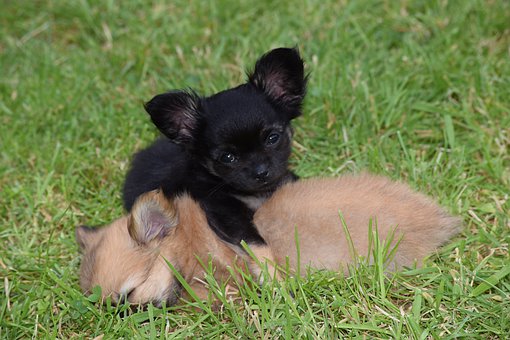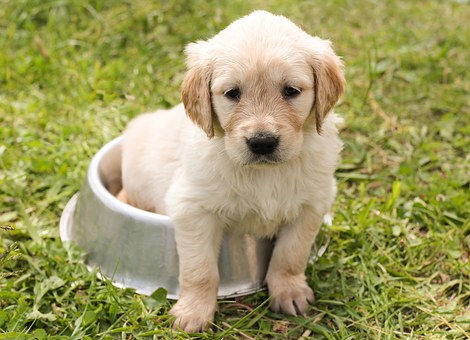Skunks are everywhere – they can be found in both the city and suburbs. If a dog encounters a skunk, his first instinct may be to run towards the animal. Unfortunately, when a skunk feels threatened, it sprays a stinky oil to defend itself. Perhaps your dog got sprayed for his troubles.
Although your first impulse may be to bring your pet inside the house for washing, that could be a bad idea. The smell of skunk oil on the dog’s coat can spread throughout the entire indoor area. Also, the scent can still linger for a year on the skin and coat of a dog unless properly removed. Even if humans cannot smell the oil after several baths, the dog may still be aware of the scent.
Skunk oil contains sulfurous chemicals known as “thiols,” which are produced by the skunk’s anal glands as defense against potential predators. It can be sprayed as far as 15 feet in distance. When it is directly blasted in a pet’s face, it can be incredibly painful and irritate the dog’s eyes. Rinse them thoroughly with cool water or apply gentle eyewash solution.
Here are some additional tips to effectively “deskunk” your dog:
1. Keep him outside
Keeping your dog outside prevents the pungent smell from creeping into the house. Additionally, keeping the dog in one spot allows you to check his physical well-being and prepare him for a bath.
2. Mix a homemade solution
Although some pet owners use the “tomato juice” treatment to eliminate the stink, your dog may end up smelling more like a stinky tomato! To effectively remove the skunky odour, concoct your own “deskunking” solution. Mix together:
- One quart (or as much as you can get) of 3% hydrogen peroxide
- One-fourth cup baking soda
- One to two teaspoons of liquid dishwashing soap
- Make appropriate measurement adjustments if you own a small dog
Wear a pair of rubber gloves and apply the solution to the dog’s coat thoroughly, keeping it away from eyes. If possible, leave the solution for about 20 minutes before rinsing it. Follow up by lathering dog shampoo and rinse that well. If the stink remains, repeat the process a couple times (and then wash again the next day). Use a clean towel to dry. Dispose the mixture after use because it can explode if left in a bottle.
The solution may cause irritation to the dog’s skin, especially if your furry friend is prone to skin conditions. If possible, consult a veterinarian before using the solution.
In addition to their foul-smelling spray, skunks are also potential rabies carriers. If skunks frequent your backyard, you may need to hire wildlife removal services to protect both your pets and children.
If your dog got sprayed by a skunk in Toronto or the Greater Toronto Area, contact Liddle Rascals Wildlife Control. We offer skunk removal services that are safe and humane for both the residents and the animals in question. Our services include a thorough home inspection and advice on repairs, remedies, and prevention.
Expert Skunk and Wildlife Removal in the Greater Toronto Area
We are available 24 hours a day, seven days a week.
Call us at (416) 356-5886 or contact us online.








Leave a Reply
You must be logged in to post a comment.